Supplement Ingredient Guide: L-Carnitine
What is it?
L-Carnitine is an amino acid which is used to transport long chains of fatty acids into the mitochondria to fuel aerobic respiration.
Indications
L-Carnitine is for those whom are looking at means of reducing muscle soreness, improving rate of recovery, maintain testosterone levels during prolonged periods of exercise and increase fat metabolism which consequently reduces weight.
How much should I take?
One should take 1-3g divided per day during days of intense training days. It’s best taken on an empty stomach either early morning or afternoon. Do not consume when not training. This is to ensure the body’s own L-Carnitine production is sustained.
Research
L-Carnitine and its acetylated form, Acetyl-l-carnitine have been shown to be capable of reducing weight. However, under closer examination this was found to be secondary to the increased ability to exercise more as opposed to the biochemical effects. However, it has been shown to be highly effective to combat ageing effects and increasing insulin sensitivity. It’s also been shown to help improve both blood vessel and neuron health.
Overall, it has a wide variety of benefits for everyone due to it’s organ protective effects combined with it’s antioxident effects.
Side effects
Up to 6g, no side effects have been reported in any of the papers. Prolonged use of doses greater than 6g has not been explored fully within the scientific field.
References
Amin K. A. and A Nagy, M. A. (2009) Effect of Carnitine and herbal mixture extract on obesity induced by high fat diet in rats. Diabetology & Metabolic Syndrome, 1:17
Bidzinska, B., Petraglia, F., Angioni, S., Genazzani, A. D., Criscuolo, M., Ficarra, G., Gallinelli, A., trentini, G. P. and Genazzani, A. R. (1993) Effect of different chronic intermittent stressors and acetyl-l-carnitine on hypothalmic beta-endorphin and GnRH on plasma testosterone levels in male rats. Neuroendocrinology. 57, 985-990.
Bloomer R. J., Fisher-Wellman K. H. and Tucker P. S. (2009) Effect of oral acetyl L-carnitine arginate on resting and postprandial blood biomarkers in pre-diabetics. Nutrition & Metabolism, 6:25
Cave MC, Hurt RT, Frazier TH, Matheson PJ, Garrison RN, McClain CJ, McClave SA (2008) Obesity, inflammation, and the potential application of pharmaconutrition. Nutr Clin Pract 2008, 23:16-34.
Cipolli, C. and Chiari, G. (1990) Effects of L-acetylcarnitine on mental deterioration in the aged: initial results. Clin Ter. 132 (6 suppl), 479-510.
Flanagan JL, Simmons PA, Vehige J, Willcox MDP, Garrett Q (2010) Role of carnitine in disease. Nutrition & Metabolism 2010, 7:30.
Giamberardino, m. A., Dragani, L., Valente, r., Di Lisa, F., Saggini, R. and Vecchiet, L. (1996) Effects of prolonged L-carnitine administration on delayed muscle pain and CK release after eccentric effort. International Journal of Sports Medicine. 17, 320-324.
Gülçin I. (2006) Antioxidant and antiradical activities of L-carnitine.Life Sci. Jan 18;78(8):803-11.
Hiatt W. R., Regensteiner J. G., Wolfel E. E., Ruff L. and Brass E. P. (1989) Carnitine and acylcarnitine metabolism during exercise in humans. Dependence on skeletal muscle metabolic state. J Clin Invest. October; 84(4): 1167–1173.
Hiatt, W. R. (2004) Carnitine and peripheral arterial disease. Ann N Y Acad Sci. 1033, 92-98.
Hulsmann, W. C. and Dubelaar, M. L. (1988) Aspects of fatty acid metabolism in vascular endothelial cells. Biochemie. 70, 681-686.
Iliceto S, Scrutinio D, Bruzzi P, D’Ambrosio G, Boni L, Di Biase M, Biasco G, Hugenholtz PG, Rizzon P (1995) Effects of L-carnitine administration on left ventricular remodeling after acute anterior myocardial infarction: the L-Carnitine Ecocardiografia Digitalizzata Infarto Miocardico (CEDIM) Trial. J Am Coll Cardiol 1995, 26:380-387.
Kanter, M. N. and Williams, M. H. (1995). Antioxidants, carnitine, and choline as putative ergogenic aids. International Journal of Sports Nutrition. 5, S120-S131.
Karlic, H. and Lohminger, A. (2004) Supplementation of L-carnitine in athletes: does it make sense? Nutrition. 20 (7-8), 709-715.
Kidd, P. M. (1998) Phosphatidylserine (PS), A remarkable Brain Cell Nutrient. Decatur, IL: Lucas Meyer, Inc.
Kidd, P. M. (1999) A Review of Nutrients and Botanicals in the Integrative Management of Cognitive Dysfunction. Alternative Medicine Review. 4 (3), 144-161.
Kraemer, W. J. and Volek, J. S. (2000) L-carnitine supplementation for the athlete. Anew perspective. Annals of Nutrition and Metabolism. 44, 88-89.
Kramer, W. J., Volek, J. S., French, D. N., Rubin, M. R., Sharman, M. J., Gomez, A. L., Ratamess, N. A., Newton, R. U., Jemiolo, B., Craig, B. W. and Hakkinen, K. (2003) The effects of L-carnitine L-tartrate supplementation on hormonal responses to resistance exercise and recovery. J Strength Cond Res. 17 (3), 455-462.
Krsmanovic, L. Z., Virmani, M. a., Stojilkovic, S. S. and Catt, K. J. (1994) Stimulation of gonadotrophin-releasing hormone secretion by acetyl-l-carnitine in hypothakmic neurons and GT1 neuronal cells. Neuroscience Letters. 165, 33-36.
Liu, J., Head, E., Gharib, A. M., Yuan, W., Ingersoll, R. T., Hagen, T. M., Cotman, C. W. and Ames, B. N. (2002) Memory loss in old rats is associated with brain mitochondrial decay and RNA/DNA oxidation: Partial reversal by feeding acetyl-L-carnitine and/or R-alpha-lipoic acid. Neurobiology. 99 (4), 2356-2361.
Loster, H., Miehe, K., Punzel, M., Stiller, O., Pankau, H. and Schauer, J. (1999) Prolonged oral L-carnitine substitution increases bicycle ergometer performance in patients with severe, ischemically induced cardiac insufficiency. Cardiovascular Drugs Therapy. 13, 537-546.
Malone JI, Cuthbertson DD, Malone MA, Schocken DD (2006) Cardio-protective effects of carnitine in streptozotocin-induced diabetic rats. Cardiovascular Diabetology 2006, 5:2
McDaniel, M. A., Maier, S. F. and Einstein, G. O. (2003) “Brain-specific” nutrients: a memory cure? Nutrition. 11-12, 955-956.
Neumann, G., Pfutzner, A. and Berbalk, A. (2000). Successful Endurance Training. Oxford: Meyer and Meyer Sport (UK), LTD.
Ramsay R R (2000) The carnitine acyltransferases: modulators of acyl-CoA-dependent reactions. Biochem Soc Trans , 28(2):182-6.
Sachan DS, Rhew TH, Ruark RA: (1984) Ameliorating effects of carnitine and its precursors on alcohol-induced fatty liver. Am J Clin Nutr 1984, 39:738-744.
Tempesta, E., Troncon, R., Janiri, L., et al., (1990) Role of acetyl-L-carnitine in the treatment of cognitive deficit in chronic alcoholism. Int J Clin Pharmacol Res. 10, 101-107.
Traina G, Bernardi R, Cataldo E, Macchi M, Durante M, Brunelli M (2008) In the Rat Brain Acetyl-L: -carnitine Treatment Modulates the Expression of Genes Involved in Neuronal Ceroid Lipofuscinosis. Mol Neurobiol 2008. 38(2):146-52.
Volek, J. S., Kraemer, W.J., Rubin, M. R., Gomez, A. L., Ratamess, N. A. and Gaynor, P. (2002) L-carnitine L-tartrate supplementation favouably affects markers of recovery from exercise stress. American Journal of Physiology. 282, E474-482.
http://www.strengthandfitnessuk.com/acetyl-l-carnitine – Accessed 01/09/2013
http://examine.com/supplements/L-Carnitine/ – Accessed 01/09/2013
 Supplement Judge Unbiased Supplement Reviews – Do they really work??
Supplement Judge Unbiased Supplement Reviews – Do they really work??

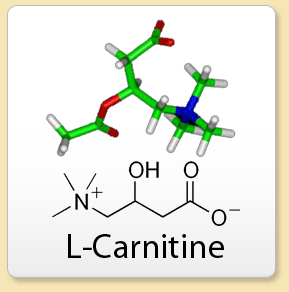
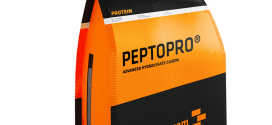
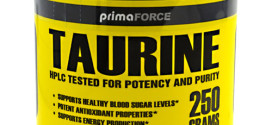
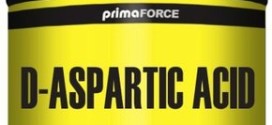
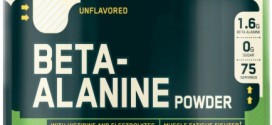
“@SupplementJ: New Guide: L-Carnitine – http://t.co/ygnCowFQKJ”
@moldoll2 I use these guys for references sometimes.thanks for the tip tho!